By Keyshawn Davis
In 2016, Mule Creek State Prison in Ione introduced an education program for its inmates to earn their associate degrees. David Cable was an inmate at Mule Creek at the time and thought this program, called the Prison and Reentry Education Program (PREP), could help him achieve an education and change his life.
Cable said at the time, he was still deep in his addiction and he was at a crossroads — so he decided he needed to do things differently. He wanted to see how education could help him on his journey of personal healing, growth and figuring out his future.
“They brought [the program] to the yard and, at that point, my life education wasn’t something I was really focused on,” Cable said. “So I decided I’m gonna give this a chance and just see what happens.”
Cable enrolled in the Mule Creek PREP program, which was offered through the Los Rios Community College District. After his release from prison in July 2023, he enrolled at Sacramento City College and Cosumnes River College, both in the Los Rios district. He earned his associate degree in social work with an emphasis on addiction studies in spring 2024.
“The program basically gave me everything I needed to be successful,” Cable said. “They brought me the classes I needed, they brought a cohort, a certificate program, so I could get that certificate. Upon release, I was able to complete the remaining classes for the AA degree that weren’t offered inside.”
Although the program has successfully helped many incarcerated students, say its supporters, the Los Rios PREP is in jeopardy of not continuing in fall 2024 due to an ongoing investigation of nine faculty members involved in the program.
But those faculty members say that as the program has grown, the district administration has not done its part to keep up. They say administration has been slow to deliver classroom materials for the students, and that faculty is not being properly trained to teach in a prison environment. Additionally, they say administration has not been receptive to teacher feedback.
Frustrations on both sides
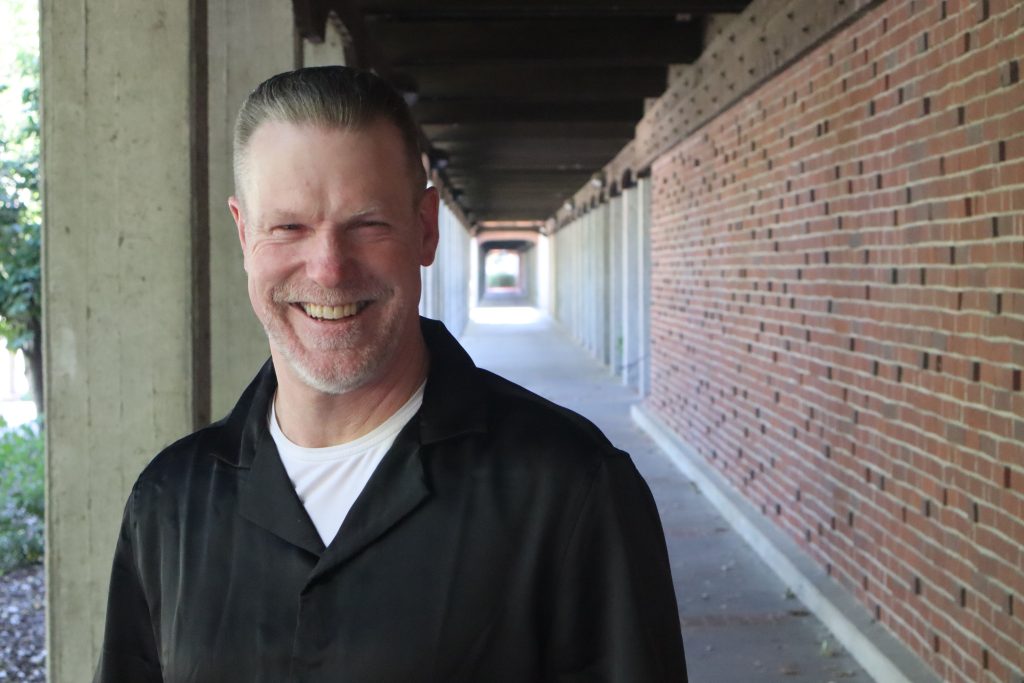
Los Rios’ PREP program, started in 2016, partners with the California Department of Corrections and Rehabilitation to support incarcerated students by providing classes in prisons for inmates to complete their degrees. This program is offered through all four Los Rios campuses, and about 30 faculty members go into several different prisons, including Mule Creek State Prison, Folsom State Prison, Folsom Women’s Facility, Sacramento County Youth Detention Facility and Sacramento Sheriff’s Rio Cosumnes Correctional Center, to teach students and support them when they are released.
Once out of prison, the students then meet a reentry faculty member who helps them continue their path of getting their degrees.
But for the past few years, several faculty members have said the district hasn’t done their part to meet the needs of staff in PREP. Faculty teach incarcerated students face-to-face, and many have said that the district has struggled to accommodate their needs, that they constantly have to adjust to unforeseen circumstances, and that the district is slow to resource them fully.
In a May email, Jason Newman, president of the Los Rios College Federation of Teachers, urged faculty members not to participate in the program given the current circumstances.
Folsom Lake College English professor and PREP faculty member Josh Fernandez said that currently there is no faculty scheduled to teach classes inside the prison for this fall semester.
“So no one who’s teaching in the program has a schedule inside the prison,” Fernandez said. “Which means there’s no Folsom Lake College inside of the prison. There’s no college inside of the prison. At this point, not only is it in jeopardy, it’s gone.”
Nine faculty members are under investigation by the Los Rios school district for a number of allegations, including violations of approved curriculum and the physical movement of letters from the prison to outside of the prison, and the misuse of faculty email to distribute those letters.
In response to a request for comment about the investigation, Los Rios Chief Staff and Communications Officer for Los Rios Gabe Ross said the district does not comment on ongoing investigations, out of respect for due process for all parties involved.
Ross said in an email, in terms of the program continuing, “Los Rios is absolutely committed to the continued success of this inspiring program that has led to so many extraordinary stories of redemption. We will continue to negotiate [with] all partners, as appropriate, to ensure an ongoing plan that allows students to complete the degrees that they have worked so hard for.”
Fernandez is one of nine PREP faculty members under investigation. He said the program began to fall apart when the district took over from faculty.
“Students were not getting their things,” Fernandez said. “I taught for eight weeks without laptops, without supplies, without books. It was crazy. The students were really upset. A lot of them were like … ‘This is how we’re treated and this is who we are. This always happens to us.’”
Kalinda Jones is a social work and human resource professor at Folsom Lake College. She has been a part of the program since 2016 and became the faculty coordinator in 2020. Jones said that as the program has grown, it has become problematic. In spring 2023, the program had a dean and a director for 30 faculty members, she said — an unsustainable amount of oversight for two people to carry, according to Jones.
Jones said concerns continued to be raised in the fall of 2023. She said the district was unreceptive to faculty feedback. She said the students were frustrated because they were concerned that when classes started in spring 2024, they would once again not have the supplies they needed like books and computers.
“As the faculty coordinator, my job was to bring concerns up to administration,” Jones said. “I started an email to compile what faculty were hearing and student concerns, and that was December 5 of 2023. And then on December 15, of 2023, I was told that I was under investigation and was told I couldn’t teach in the prison any longer, although I’d been teaching in the prison since 2016.”
By the end of March, eight other faculty members received emails indicating that they were being questioned by the administration, according to Jones.
Problems inside the prisons
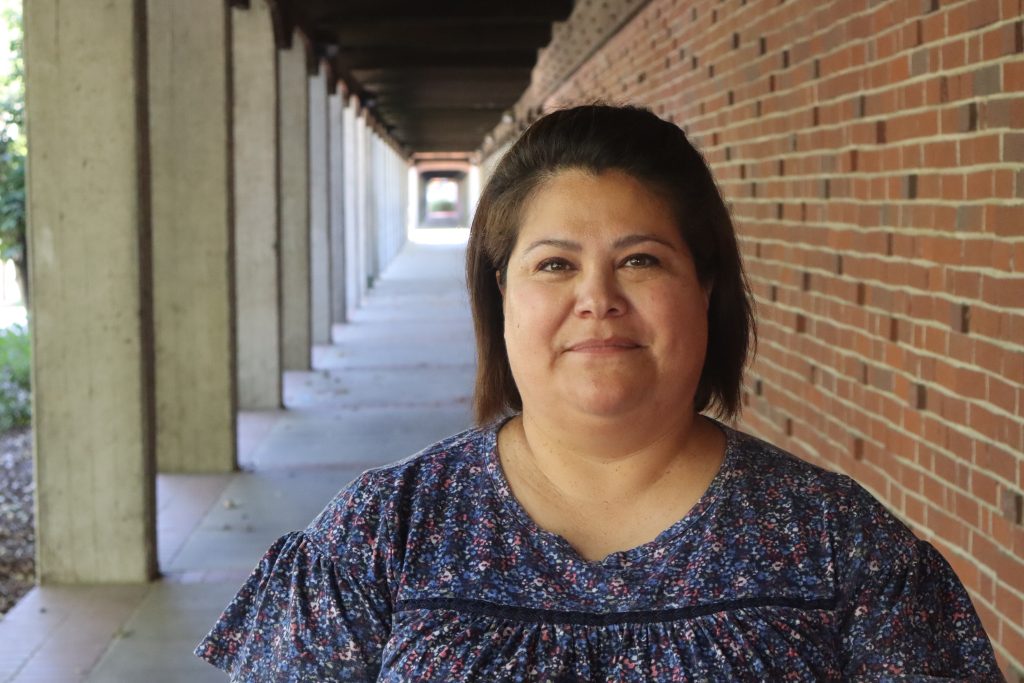
Veronica Lopez, the prison reentry faculty coordinator at American River College, said she thinks that faculty who teach in the prisons don’t feel adequately trained and don’t feel like they’re being supported. Lopez is one of the nine faculty members under investigation.
“How do you have faculty teach in the prison if they themselves don’t feel supported?” she said. “So if they feel stressed, the stress then translates to the students and the students pick up the stress.”
Faculty members get a pager that they take into the prisons and if they push a button, then security will rush to the classroom in case of an emergency. But, according to Jones, the pagers are synched to specific classrooms, and Jones expressed concerns that this is not safe in instances when faculty might have to temporarily move to a different classroom.
“I’m not a person who’s afraid when I’m in prison,” Jones said, but added that changing this system would improve faculty safety. “Just ensuring that there is that extra layer of security, seems to me, should be the priority of administration, especially when our union agreement says that faculty will always have that alarm.”
Jones said that the administration told her in fall 2023 that faculty were just complaining.
“When you finally say, ‘I’m done, it’s eight weeks, and I still don’t have what I need to teach this class.’ I don’t think that’s about complaining,” Jones said. “I think that’s: I tried and tried and tried and no one’s listening.”
Student letters
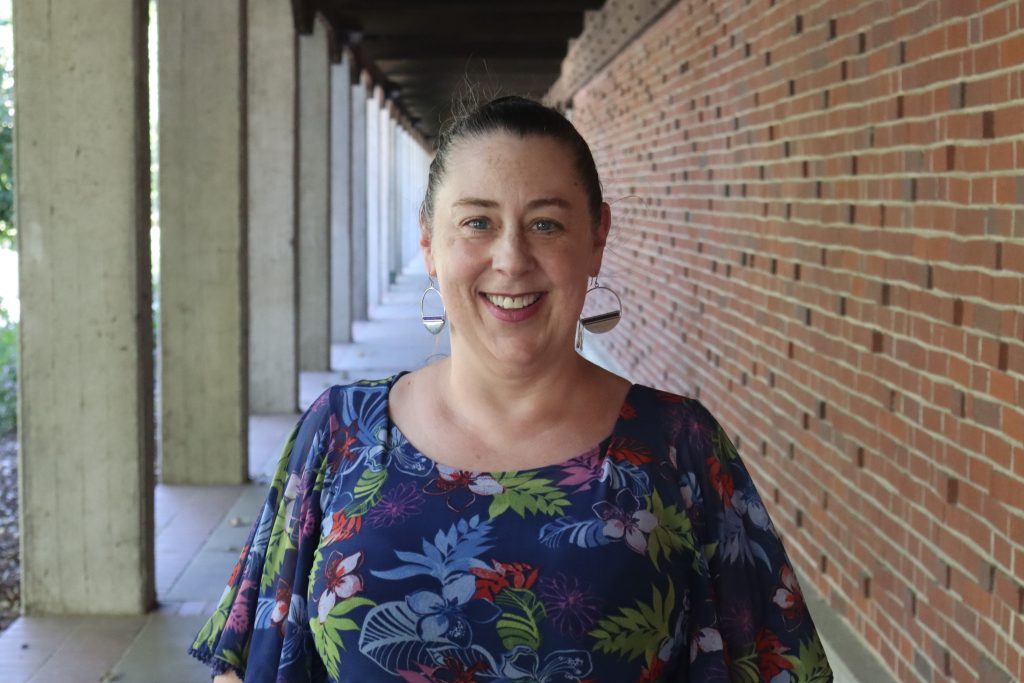
In an email to administration in December, Jones included a series of student letters inmates wrote to their future selves for a class assignment. She said the professors had collected about 100 letters from the students.
“They weren’t happy about that because they didn’t like the students’ voices,” Jones said. “But we need to be clear that students who are incarcerated don’t have email. So what they have are letters. We’ve been doing this from the beginning.”
The administration said faculty members breached a California Department of Corrections and Rehabilitation policy (CDCR policy 181) by taking those letters from prison inmates. It is a misdemeanor to give or take letters from prison inmates without the authorization of the warden. “We’ve been walking letters in and out of prisons because they’re just student work,” Jones said.
Newman, president of the Los Rios College Federation of Teachers — the district’s faculty union — said the faculty did not violate CDCR or Los Rios rules and protocol. “These faculty were simply engaged in creating a class assignment and carrying out that class assignment with their students,” Newman said. “The letters were part of the class assignment and therefore can be physically transmitted from inside to outside of prison [and] between units as well.”
Newman said Jones has been instrumental in helping to create and maintain the program over time as the faculty coordinator of PREP. “Without her efforts over the past several years, the program would not have been able to expand into a flagship community college prison partnership for the education of incarcerated individuals,” Newman said.
Fernandez said that during his investigation, the investigator told him that he was doing something criminal by teaching things that were not on the syllabus. “If you understand even a tiny bit of what teaching is, he would understand that classrooms have all kinds of twists and turns,” he said.
Fernandez recalled a time when one of his students, an older neo-Nazi, wrote his first paper about being in the American neo-Nazi Party. He said he talked with the inmate about going in front of the parole board and how he failed the hearing numerous times.
After talking with the inmate during class and hearing about how he got arrested, Fernandez said to the inmate that it sounded like he had a chip on his shoulder. The inmate began to cry, saying that no one had ever told him that before.
“That was not on my syllabus,” Fernandez said. “But, for me, this is part of teaching that’s intangible. It’s not something I wrote out in the syllabus. It’s not something I planned. But it’s something that happens in the classroom all the time. Whether it’s in a prison setting, whether it’s in a classroom at Folsom Lake College, these little magical moments happen all the time. They’re not scripted. They’re not in the curriculum. But that’s part of teaching, whether you like it or not.”
With the fate of PREP still unknown, those like Cable who have benefited from it and the faculty who still care about the program, say it would be a shame to have it end.
After his release from prison, Cable was able to continue pursuing his education and said he always had the support of the people who began the program. “I’ve leaned on my mentors,” Cable said. “I’ve had counselor meetings, and just overcoming all of the barriers of coming home and back into society after 26 years in prison. Because it’s overwhelming on a whole bunch of different levels.”
Cable said he plans to pursue his bachelor’s degree at Sacramento State at some point in the future. Cable wants people to understand that inmates who come home face many hurdles and barriers.
“Just because we came from prison, and did all that time in prison and the work we’ve done in our past, we can still come out here and succeed,” Cable said. “I want people to know that I represent my brothers that are still in prison out here, and that’s how I live my life.”
This story is part of the Solving Sacramento journalism collaborative. Solving Sacramento is supported by funding from the James Irvine Foundation and James B. McClatchy Foundation. Our partners include California Groundbreakers, Capital Public Radio, Outword, Russian America Media, Sacramento Business Journal, Sacramento News & Review, Sacramento Observer and Univision 19.

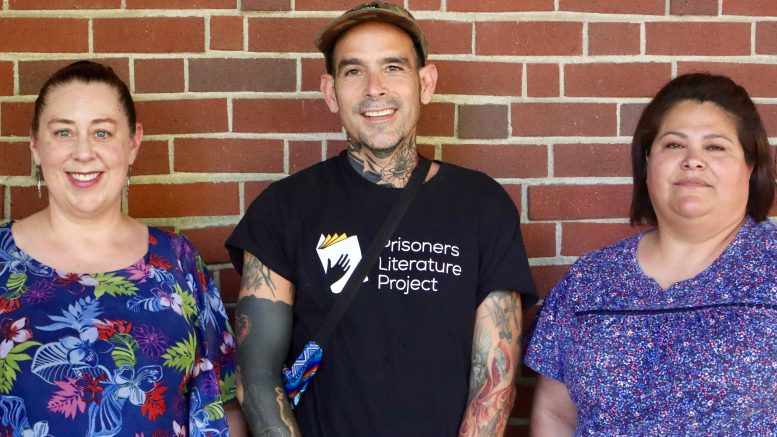
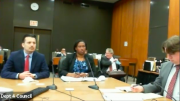

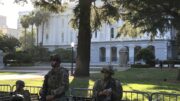

Be the first to comment on "Prison and Reentry Education Program at Los Rios colleges may not continue"